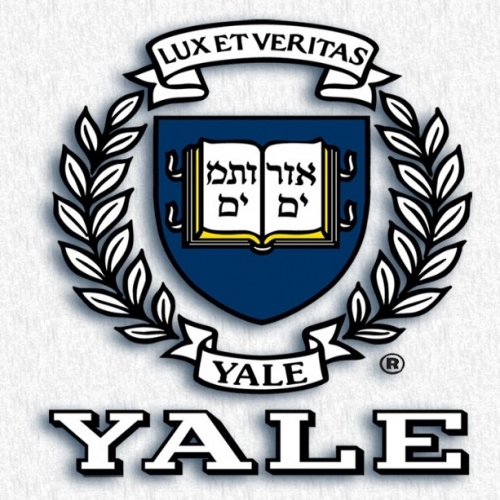Drugs that seek out and destroy disease causing proteins
Drug development is a complicated task; scientists must create a drug that binds to its target protein, thus preventing it from performing its function. The problem with this strategy is that eventually the drug falls off the protein, which then frees the protein to work again. Therefore, a patient must take lot of the drug so there are enough drug molecules present to ensure that if one drug falls off the protein, another is available to take its place. The challenge of achieving high enough dose levels to block the function of a protein has resulted in the inability to drug specific diseases. Dr. Craig Crews, of Yale University, is developing a new paradigm for drug development. He and his team's novel approach relies upon drugs that can trick the cell's own quality control mechanisms to remove a target protein completely. Coined the "seek and destroy" strategy by Dr. Crews, this new approach can be applied to diseases such as cancer and neurodegenerative diseases. Due to the fact that many rogue, disease-causing proteins can not easily be blocked using a small molecule drug approach, Dr. Crews' technique will allow scientists to drug the "undruggable."
A day in Dr. Crews' lab will reveal the incredible team of chemists, biologists, pharmacologists, biochemists, medical students, and undergraduates all working together. Such a multidisciplinary team creates a dynamic and exciting environment where many new ideas flow from different perspectives. Despite the breadth of talent within his own lab, Dr. Crews still collaborates with other labs as well. In addition to the range of disciplines within the lab, it is also a very international team hailing from Mexico, Peru, Austria, Germany, Korea, USA, Senegal, Nigeria, and Uruguay. Such a holistic team ensures that the concept of bench-to-bedside is realized within Dr. Crews' lab. The lab's success in developing an anti-cancer drug that is already FDA approved is evidence of the way in which such research is highly relevant to basic science while working towards applications that are truly important to patients and their families.
Current research includes:
-
Carfilzomib (Kyprolis TM): Dr. Crews' FDA-approved drug for relapsed multiple myeloma, Carfilzomib (http://en.wikipedia.org/wiki/Carfilzomib), is a successful model of a drug that engages the cells' quality control mechanisms to kill tumor cells.
-
Arvinas: Dr Crews is the Founder and Chief Scientific Advisor of Arvinas, a new pharmaceutical company focused on developing novel therapeutics to treat a variety of diseases including cancer, pro-inflammatory, autoimmune, and rare diseases. This company is based upon Dr. Crews' efforts to drug the undruggable.
-
Academic Training: Dr. Crews believes that training future researchers is a necessary tenet of being a part of the scientific community. As the Director of the Yale Center for Molecular Discovery, he helps to push towards translational medicine alongside other scientists.
Bio
Craig has a foothold in both the academic and biotech arenas. On the faculty at Yale since 1995, he is the Lewis B.Cullman Professor of Molecular, Cellular and Developmental Biology and holds joint appointments in the departments of Chemistry and Pharmacology. In 2003, he co-founded Proteolix, Inc, whose proteasome inhibitor, Kyprolis (TM) recently received FDA approval for the treatment of multiple myeloma. Since Proteolix's purchase by Onyx Pharmaceuticals in 2009, Craig has focused on a new drug development technology, which served as the founding IP for his latest biotech venture, Arvinas, Inc. (www.arvinas.com). Currently, Craig serves on several editorial boards and is Editor of Chemistry&Biology. He recently received the 2013 CURE Entrepreneur of the Year Award and the 2014 UCB-Ehrlich Award for Excellence in Medicinal Chemistry. Craig graduated from the U.Virginia with a B.A. in Chemistry and received his Ph.D. from Harvard University in Biochemistry.
Dr. Crews was originally inspired as a child watching his father, a researcher at NASA. From him, he learned about the impact that researchers can have when they apply lessons from their basic research to important problems facing society. This goal has driven him throughout his career and motivated him to focus on drug development. As he has continued his professional journey, Dr. Crews' father has continued to inspire him. His father's current battle with Alzheimer's has ignited within Dr. Crews the unquestionable need to strengthen the pharmaceutical options available on the market.
In his free time, aside from research, Dr. Crews enjoys spending time with his family. Alongside his wife and two daughters, he enjoys hiking, traveling, and reading historical nonfiction. He and his wife share a love for running in addition to a passion for serving patients. As his wife is a physician, Dr. Crews hears the challenges she has in treating her patients due to the lack of sufficiently active drugs and is therefore motivated to continue his own work.
Website: http://crewslab.yale.edu/
In the News
Publications
Videos
Awards
UCB-Ehrlich Award for Excellence in Medicinal Chemistry (European Federation of Medicinal Chemistry), 2014
Entrepreneur of the Year, Connecticut United for Research Excellence (CURE), 2013
Fellow, American Association for the Advancement of Science (AAAS), 2013
Senior Scholar Award, Ellison Medical Foundation, 2011
Lewis B. Cullman Professor of Molecular, Cellular, and Developmental Biology, 2010
Patents
Enzyme Inhibition
Patent US 6,831,099 B1
Enzyme Inhibition
Patent US 7,476,650
Proteolysis-Targeting Chimeric Pharmaceutical
Patent US 7,041,298
Proteolysis-Targeting Chimeric Pharmaceutical
Patent US 7,208,157
Compounds for Enzyme Inhibition
Patent US 7,232,818


